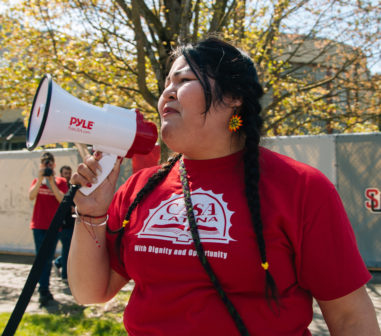Are you a domestic worker?
Find resources about your rights, how you can stay safe while on the job, and labor rights updates.
Do you employ a domestic worker?
Learn how to make your home a safe, fair, and equitable workplace for you and your employee.
Ready to get involved?
Join the Domestic Workers Council to discuss your experiences and how to create change.
Partners
Casa Latina is proud to partner with the Seattle Office of Labor Standards (OLS) to provide outreach and education about Seattle’s labor standards. If you would like to learn more about OLS please contact OLS at (206)256-5297 or visit the OLS website at www.seattle.gov/laborstandards.
Sign Up for Casa Latina News!
Let’s create change together. Sign up to receive updates on Casa Latina’s programs, action alerts, events, and opportunities for involvement.
By submitting this form, you are consenting to receive marketing emails from: Casa Latina. You can revoke your consent to receive emails at any time by using the SafeUnsubscribe® link, found at the bottom of every email. Emails are serviced by Constant Contact




